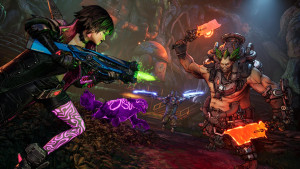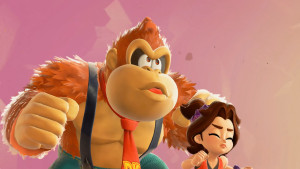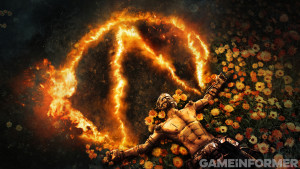Last chance for early bird pricing! Subscribe by June 25th to receive the debut issue
Fullbright Company Makes The Case For Gone Home's Game Status

Is Gone Home a game? It certainly seemed as though that question was being asked a lot after the Fullbright Company released it last year. The game's designer and writer Steve Gaynor made his case for Gone Home's game status during a GDC panel this morning.
This post contains Gone Home spoilers
He started by showing off a parody trailer for Gun Home DLC, which shows a lot of traditionally "gamey" elements, like firearms and blood.
Gaynor talked about past games he worked on, which he calls "capital g" games, like BioShock 2 and BioShock Infinite. He says it was interesting with Gone Home that it got negative comments saying it's not a game, while also getting game of the year awards from some gaming outlets. He couldn't help but wonder what that means, but he stands by the fact that it is a game. Some of the arguments against its game status are lack of combat, no story branching or player builds, no failstates, and a short run time. Gaynor says that Gone Home subverts expectations that players have grown accustomed to over the years.
These things that seemingly disqualify it as a game are part of games anyway, like variability of player experience, a central focus on player agency, and a spirit of playfulness within its themes. Gaynor says players establish a dialog between themselves and an unpredictable machine, essentially. Player inputs change that conversation every time they play the game. As Gaynor says it can take on a variety of forms. In some games, the relationship is shown in a high level, like Telltale's The Walking Dead games. Player decisions on whether someone lives or dies will be shown in the game. In Minecraft, people play the game by creating and destroying blocks. You can build a cathedral, Gaynor says, while your friend might want to build something else.
Gaynor then brought up Sleep No More, which is an interactive theater experience in New York that takes place in a converted hotel. Participants move freely through the space and can interact with story-building artifacts, or follow actors around as they put on a performance. The static nature of those performances is integral to the show; you can't interact with the actors, but your decisions matter. You can choose to follow actors who separate after a scene, and then see something that's unique to your own session. Your choices created a unique experience, even though it wasn't technically interactive. In a similar way, Gone Home lets players looks in a house, and the player's structure of the experience is unique to the player – even if, as Gaynor says, players can't choose if Mom and Rick have an affair or not.
As another example, Gaynor says a game like Skyrim features combat but also cheese wheels. As he points out, there are a lot of cheese wheels in the game, which serve functional reasons (restoring health or having a monetary value), but players can also choose to find every cheese wheel in the world and fill a house with it. In Gone Home, Gaynor says there's no reason why players need to pick up objects like Kleenex boxes and folders, but players can. He showed several silly pictures where every object in Gone Home's house has been picked up and placed on the floor or in a closet. He also showed a picture where someone has collected a variety of objects that have significance to Sam and Lonnie's relationship and placed them on the staircase in a makeshift shrine.
When players start the game, the house is dark, and players typically turn on the lights as they explore. As Gaynor says, it's a way of tracking your progress. After a while, Fullbright knew that was going to happen, so they acknowledged the behavior by putting a note on a bulletin board to Sam saying she should stop leaving all the lights on. "You're as bad as your sister!" it reads. In another moment, players come upon a journal entry where Sam is talking about her physical relationship with Lonnie. With previous notes, players were free to keep notes open as long as they wanted. This note broke the rules, in that it would automatically close because it was being read by the player (as Sam's sister, Katie), and it was creepy to continue reading.
Gaynor then spoke about how games can reach bigger audiences by pushing definitions of what games are. They're an art form capable of so much, he says, and the industry should continue to challenge itself.









